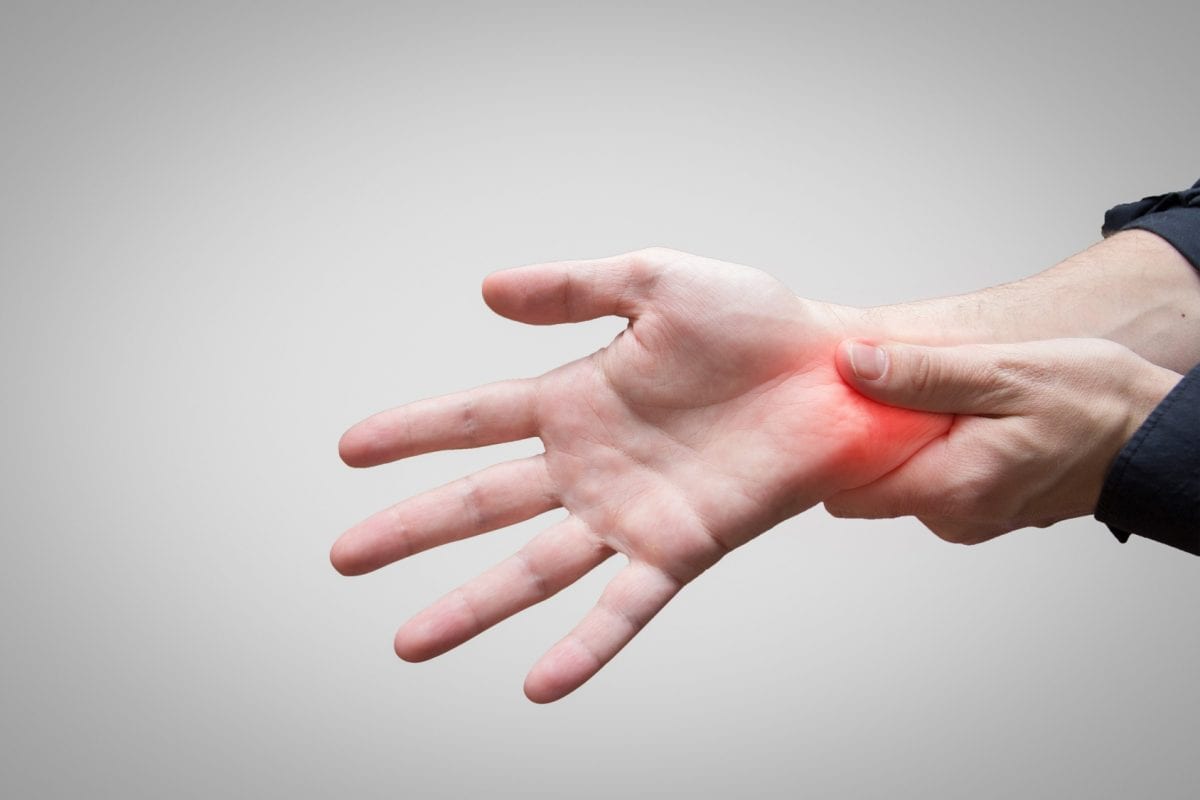You use your hands quite frequently, so it’s important to have them feeling perfect all the time. But what happens when your hands start to hurt, and you can’t perform the most basic functions? How can you tell if you’re affected by carpal tunnel syndrome? Read on and find out more, so you can get help if you need it!
What Is Carpal Tunnel Syndrome?
Each hand has a thin passageway on the palm side of your wrist. This passageway is called the carpal tunnel, and it’s composed of small bones and ligaments. Contained within the carpal tunnel is the median nerve, which runs from your forearm all the way to four of your fingers (except the pinky finger). This particular nerve is the one responsible for the sensations and motion in your thumb and the next three fingers. When the median nerve gets pinched or strained, your hand feels painful and is immobilized. This occurrence is called carpal tunnel syndrome.
What Are The Symptoms?
Carpal tunnel syndrome doesn’t happen overnight. Therefore, you need to watch out for the following:
- There might be numbness and a tingling sensation in your thumb and middle fingers. The tingling might feel like an electric shock shooting up your fingers. Note that the “pins and needles” feeling as well as the tingling in your hand might come and go. At the onset, you may feel the numbness when you wake up in the morning or after a long period of inactivity.
- The painful sensations may move from your wrist all the way up your arm. Usually, this pain will occur when you’re doing even a simple task such as driving, holding a phone or book in your hand. Sometimes, the pain in your wrist will wake you up when you’re asleep.
- The pain in your hand doesn’t go away even when you try to shake it or stretch your fingers to relax them.
- Your affected hand starts to feel weak, and you start dropping objects. You begin to have difficulty grasping things (such as pens and utensils) with your thumb and first two fingers. You may also suddenly find it challenging to do other basic tasks such as buttoning your shirt or picking up tiny things.
- You might begin to feel that your fingers are swollen even if they’re really not. Worse, you may start to find it difficult to tell the difference between what’s hot and cold.
- You feel pain when you have to lift heavy things or little children and babies. This is the symptom most commonly felt by moms.
What Are The Causes?
Anyone can get afflicted with this condition. However, women are more prone than men to suffer from the syndrome because the carpal tunnel area in women’s hands is generally smaller than in men’s. Some conditions also trigger this in people, such as the following:
- A wrist injury, like a sprain or fracture, can affect the narrow space within the carpal tunnel and pinch the median nerve.
- Pregnancy can cause this condition as some women’s hands and fingers tend to get swollen during this time because of fluid retention in their bodies. If pregnancy is the cause, the syndrome usually gets resolved after childbirth.
- Arthritis and other inflammatory conditions can lead to the swelling of the lining around your wrist tendons and impinge on your median nerve.
- Diabetes and other chronic illnesses may cause nerve damage. These illnesses might affect the median nerve and lead to carpal tunnel syndrome.
- Other medical conditions like menopause, obesity, and hypothyroidism might contribute to the occurrence of the syndrome.
- If your line of work involves working with heavy tools or being part of an assembly line that consists of working for long periods with your hands, you might be exerting constant pressure on your wrists. This can lead to your carpal tunnel getting affected.
Most people will try to ignore the pains and won’t seek help. If detected early, however, it’s easy to manage and treat this condition. Once you start to feel any of the symptoms, go see a doctor right away. You may check on this website to get yourself connected with a highly-competent hand specialist. Consulting with a doctor can help address and alleviate your pains right away. With the correct diagnosis and proper treatment, carpal tunnel syndrome can be cured, and you can prevent it from happening to you again.









